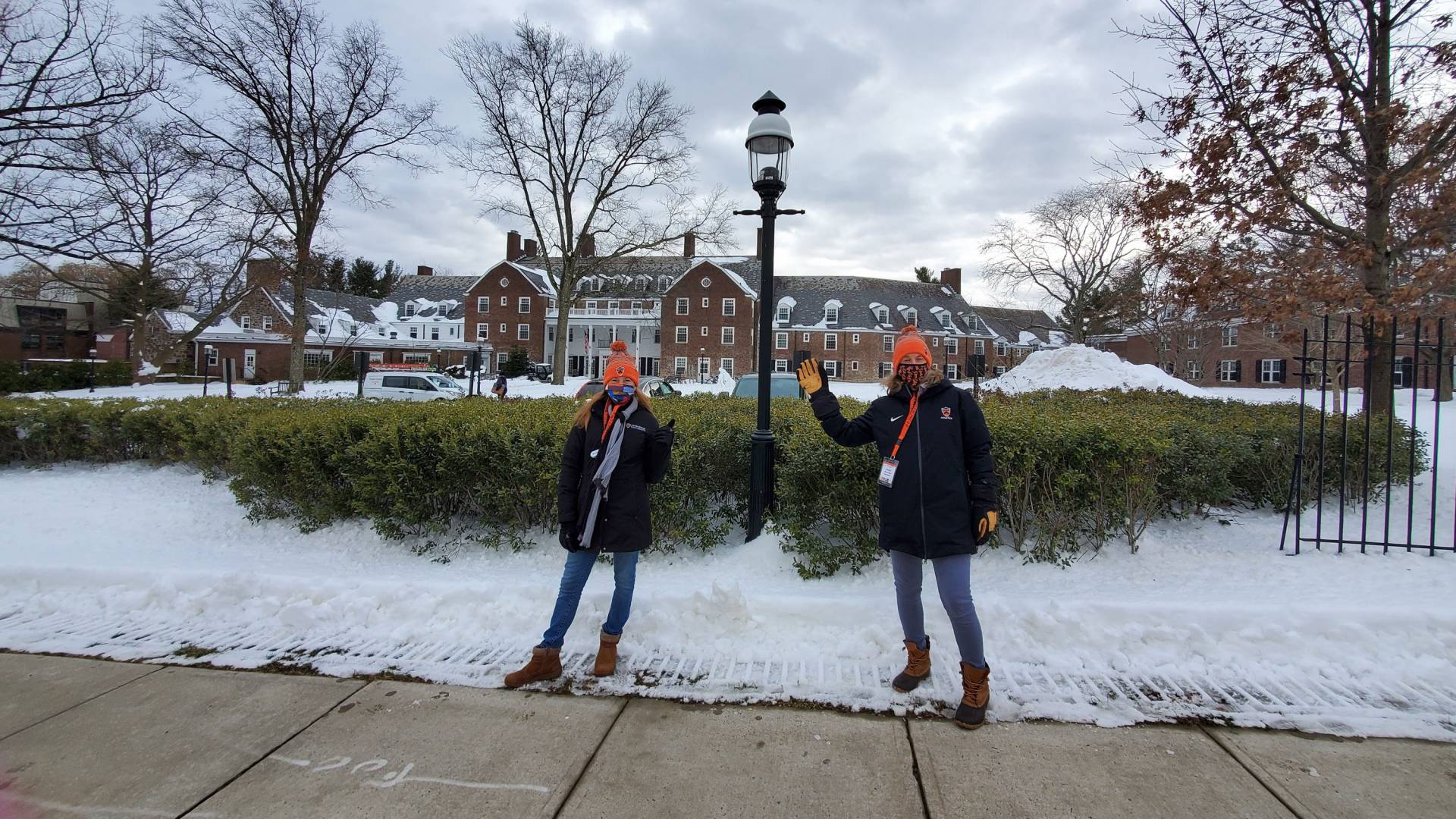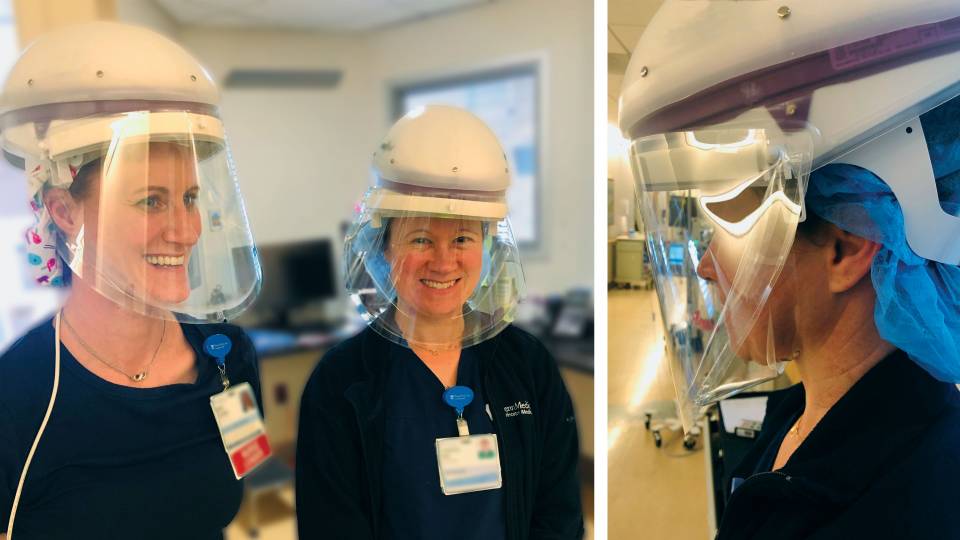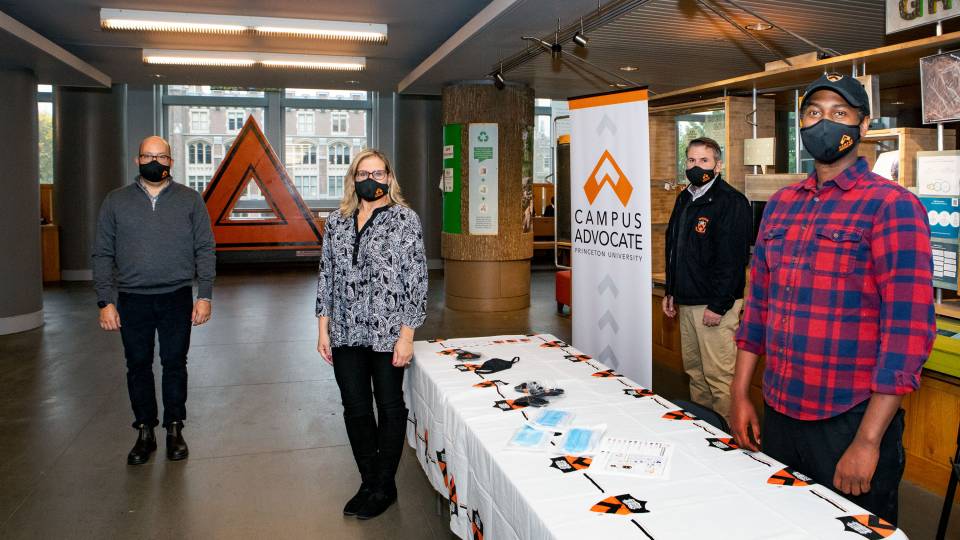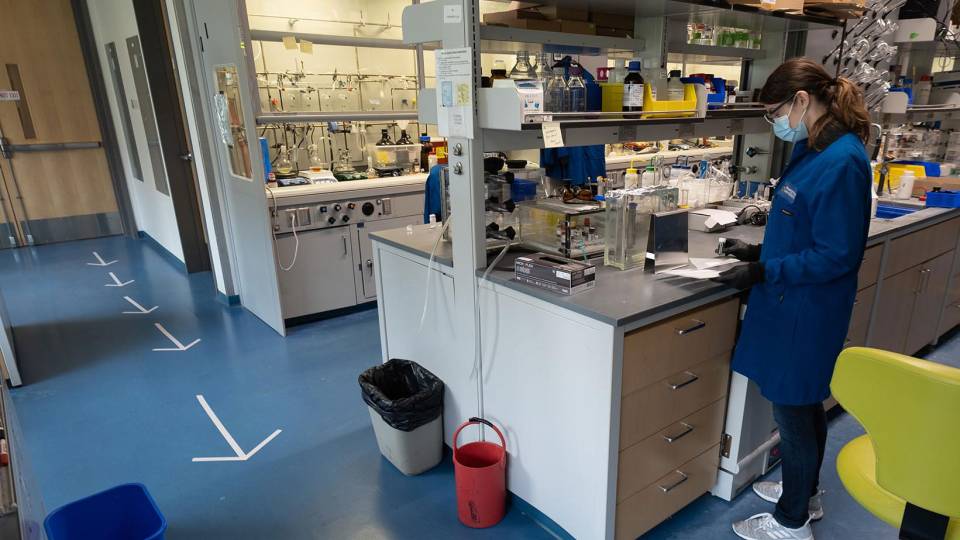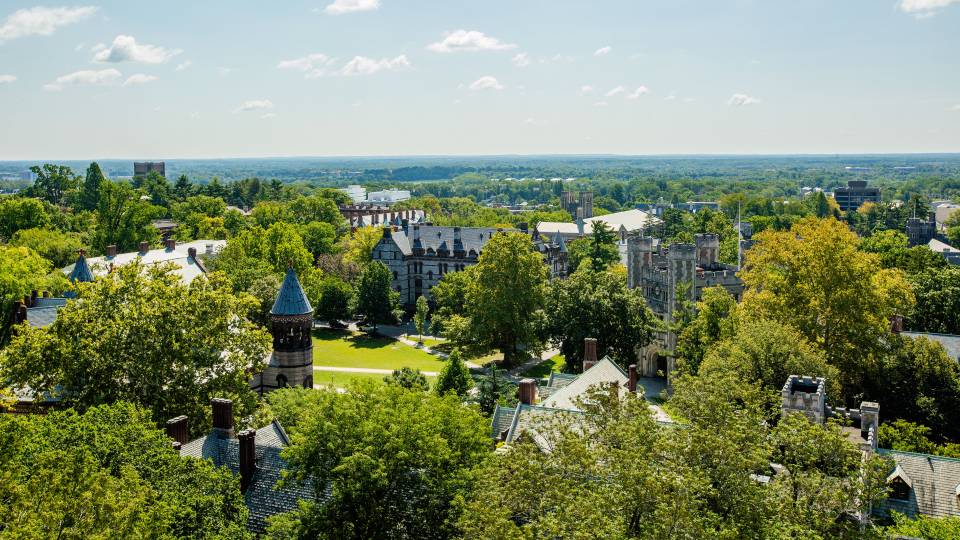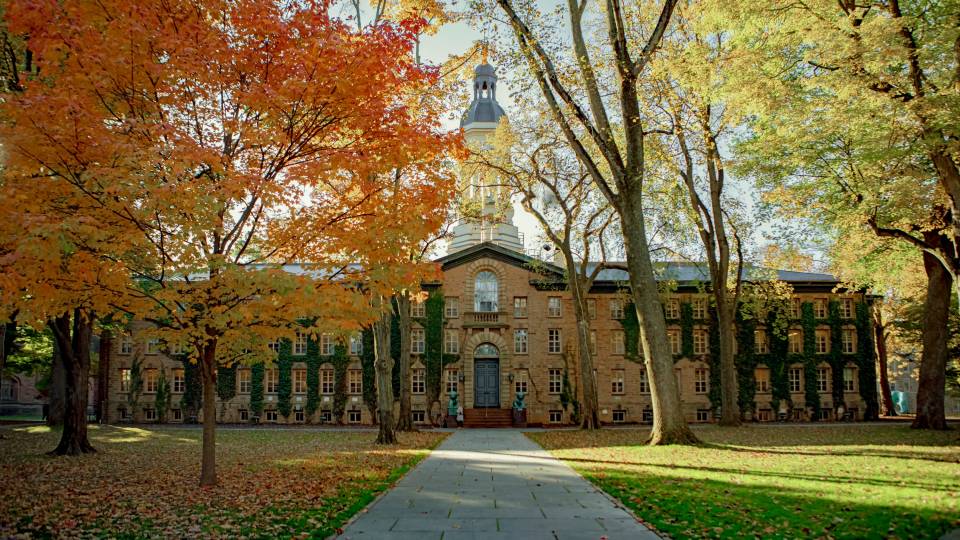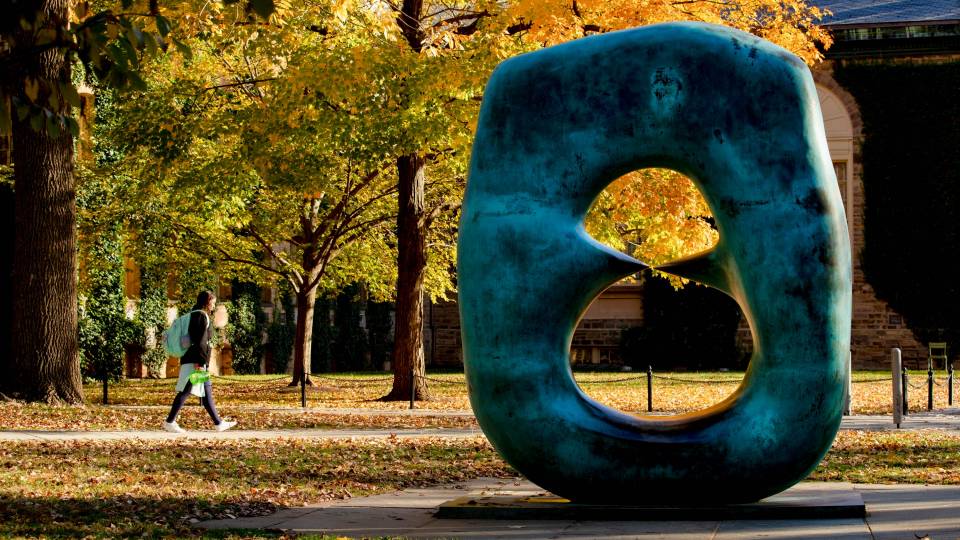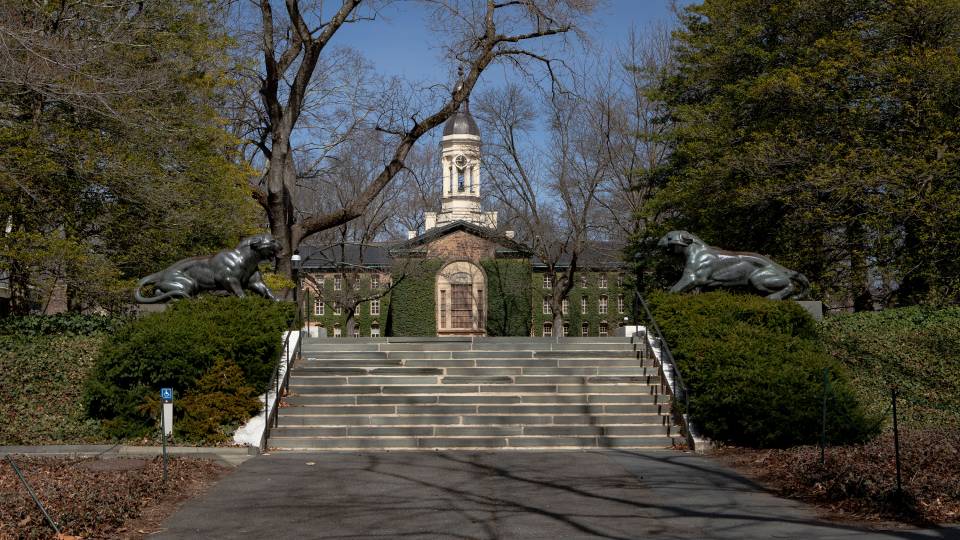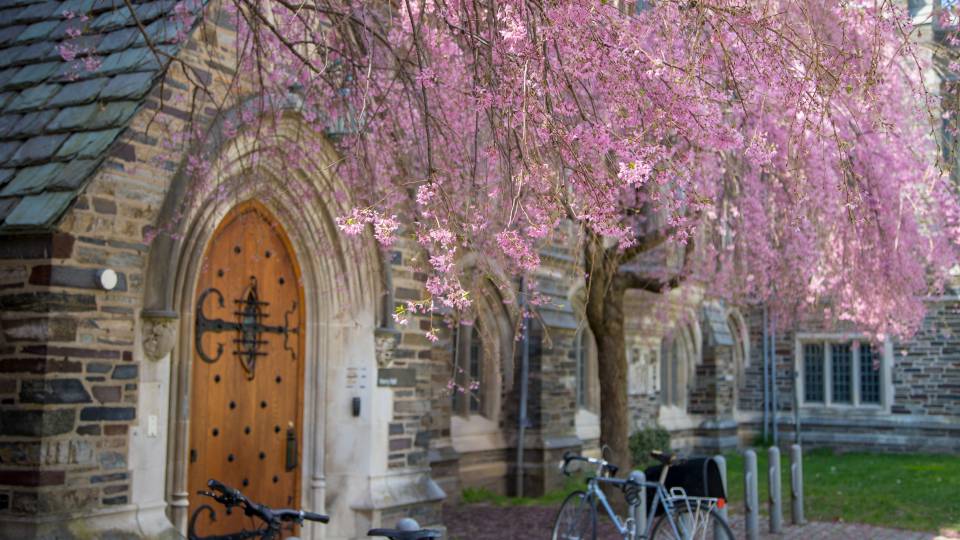Mollie Marcoux Samaan (right), the Ford Family Director of Athletics, and Allie Wolf (left), manager of wholesale and retail operations at the Princeton University Art Museum, are among the 150 senior administrators, staff and faculty serving as Community Advocates during the spring semester. The advocates are a friendly, educational resource to help limit the spread of COVID-19 in University buildings and outside on campus.
The University has launched a new Community Advocates Program (CAP) to promote wellbeing on campus and reinforce public health expectations for the spring semester. Community Advocates are stationed inside campus buildings and outdoors to remind students, faculty and staff about face coverings, physical distancing and other guidelines to limit the spread of COVID-19.
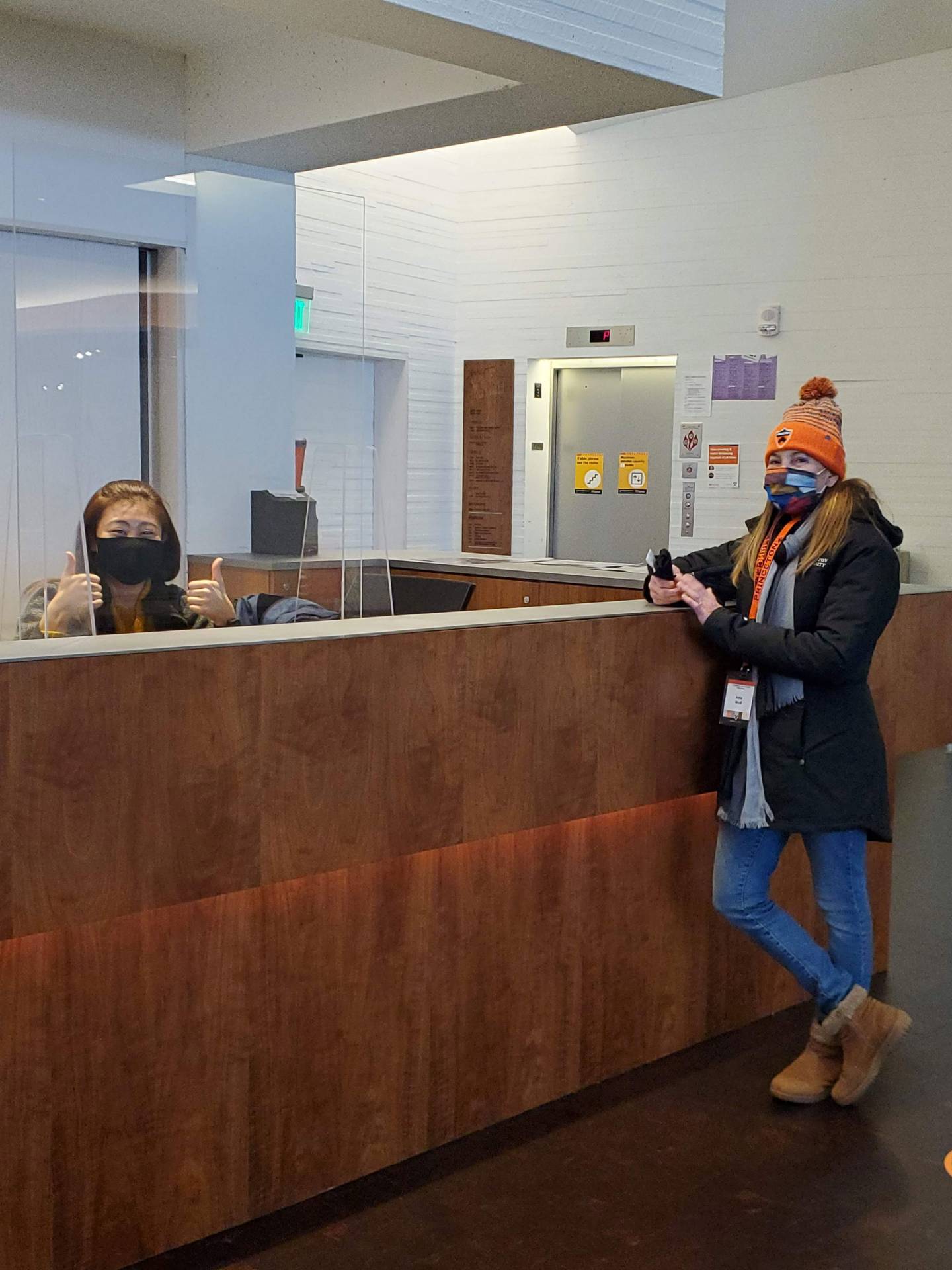
Wolf (right) wears a mask and socially distances from senior Jaeyoon Cha as they talk with each other in the lobby of the Lewis Center for the Arts. Community Advocates such as Wolf will be located in buildings such as the Lewis Center for the Arts, Frist Campus Center, Firestone Library and Chancellor Green to remind students, faculty and staff of public health guidelines.
Approximately 150 senior administrators, staff and faculty members are serving as Community Advocates. The advocates are a friendly, educational resource and can provide materials like hand sanitizer, disinfecting wipes and face masks. Students, faculty and staff are welcome to approach advocates with questions or concerns. Advocates are identifiable by their orange and black CAP lanyards.
“Community Advocates are stationed inside campus buildings and outdoors to remind all of us of the policies and behaviors that are necessary to keep the University community safe this spring,” said Vice President for Campus Life W. Rochelle Calhoun.
Community Advocates are located in buildings open to students, such as Frist Campus Center, Firestone Library and Chancellor Green, as well as common spaces in the residential colleges and Graduate College. The advocates also engage in community walks on and around campus, such as along Nassau Street, Witherspoon Street and Prospect Avenue. They will be visible during the afternoons and evenings.
The program is led by the Office of the Vice President for Campus Life. Executive Director for Planning and Administration Chris Burkmar and Executive Assistant Victoria Byrd said the initiative is off to a good start and that “members of the community are taking seriously the public health expectations that are necessary to keep us all safe.”
To help students maintain safe, socially distanced protocols, the University has opened more common spaces for studying. Undergraduate and graduates students will now be permitted to study in the lobbies, atria and other common spaces as well as select classrooms within various buildings outlined on the COVID Resources website. Students must wear face coverings, follow space capacity limits, practice physical distancing and follow cleaning protocols while accessing these spaces.
Firestone Library will continue its study-browse service to allow students and faculty to reserve a seat or browse the stacks at several locations through a reservation system.
The University’s public health guidelines for individuals living, working or visiting campus are available on the COVID Resources website. In addition, undergraduates living on campus and undergraduates living locally with approval to access campus were required to sign a Social Contract outlining behavioral expectations for the spring semester. Expectations include submitting the daily symptom check, participating in regular asymptomatic testing, complying with contact tracing efforts, and following quarantine and isolation guidelines.
The Community Advocates Program is separate from the Campus Advocates Program organized by Venue Services last fall. A small group of campus advocates continue to staff public health informational tables in buildings such as Frist Campus Center.
